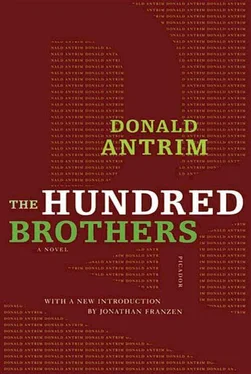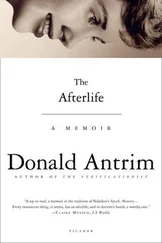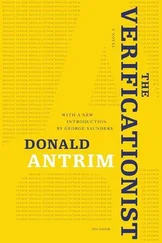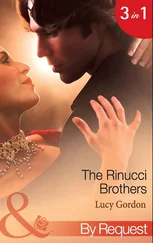He let go of Jeremy’s neck. Jeremy, delivered from minor humiliation, collapsed before Fielding’s feet. Fielding was becoming emotional, and, strangely, so were we.
He said to us, “I make documentaries because I love my brothers. Is that wrong? Someone, tell me if it is wrong, because I feel ridiculous for even saying it.”
He bent down, collected the smashed camera pieces. Nobody seemed capable, right away, of speech or action; it was a time for reflection on the complexities of our interdependence and the sorry indignities that pass as currency between us in lieu of gentler tender.
Fielding cradled his camera. Everywhere beneath the obscure light from twenty broken chandeliers, heads were bowed. Virgil laid his full weight on my arm; he leaned on me; and Maxwell, for the moment, was forgotten, though his breaths could be heard, along with Chuck’s dog’s periodic outbursts and Jeremy’s sobs. Not yet seven o’clock and already someone had made someone else cry. The sad function of this — and there is, I believe, implicit in such dynamic enactments of taunting and submissive roles, a manifest, though hidden, function —the function of this is to ally disparate siblings within coherent factions characterized by age or friendship patterns (or some or other preexisting ideological or emotional attitude), and in this way to relieve the stresses that accompany explicitly personal self-presentations in a company as amorphously large as ours. The unconscious drive to assert autonomy through withdrawal into a prejudicial collective is counterintuitive but unexceptional; it can be seen at work during any polite cocktail party, whenever political or philosophical debates erupt, and guests begin either claiming or refuting intimacy with one another by announcing, “Yes! Yes! I agree with so and so.”
Of course this is routine social behavior and everyone is familiar with it. Nor does the comparison with cocktail parties hold absolutely, since, as yet, that night in the red library, no cocktails had been poured.
Battle lines were forming anyway. Fielding in his rage had done Jeremy the valuable service of converting him from playful culprit to injured victim, two qualities practically everybody can empathize with.
Fielding had, in the process, gone too far in two directions. His anger was alarming, his reflexive petition for charity, sentimental. Here was the pathos of a man struggling to identify himself through artistic creation understood as a service, a gift to others — admittedly a beautiful and romantic formulation, though also abstruse and quixotic and, however sincerely expressed (our brother’s earnestness in this matter was not, I think, at issue), difficult to sympathize with in any really tangible way; and Fielding’s violence had without a doubt already made him a distinctly uncompelling object for sympathy or pity; and who among us wants love thrown in his face anyway? Jeremy’s crying was growing louder and louder (he did seem badly hurt, Jeremy, rolling around on bare floor, as a man will when in spectacular pain), so that, in the end, after what seemed a long while, but was, actually, probably less than half a minute’s worth of our standing there self-consciously wondering whom to blame for what and how to feel okay about it — in the end, our brother Fielding, who on any other night might have found twenty or thirty eager to champion his supposedly heartfelt artistic martyrdom — brother Fielding was, this night, pretty much without a prayer.
“Your movies are bad!” a voice called at him from the far side of the room.
“You use people and things and you don’t care who gets hurt! Is that your idea of love?” heckled an unidentifiable other from the darkness over by Sociology.
“My camera! Oh, my poor camera. Look at my camera,” the filmmaker grieved.
From the vicinity of the fireplace came a voice harsh and familiar to us all:
“Knock it off.”
Who else but Hiram. Here he came on his walker, haltingly one-handing it along, lame and clattering and now giving, I thought, uncharacteristically generous counsel: “Look here, Fielding, it’s not the end of the world. What is broken can be mended. A lot of people don’t have movie cameras and they don’t complain, they’re happy. Perhaps you might take this opportunity to exercise some self-control. Stand tall and be a leader. Set an example the rest of us can follow.” And then, gesturing toward Jeremy: “Someone help this unfortunate young person off the floor. Can’t you see his suffering? Can’t you hear his crying? How many nights have I spent listening to the dry whimpering of the young in this house? How many mornings have I woken to thoughts of death, the pounding of boots in the hall. I would offer our brother assistance myself, but, as you can see, this is not possible”—pausing to lean on his walker and wheeze a few breaths before raising his injured wrist for all to witness—“tonight I was almost murdered, and my hand has been destroyed.”
Hiram’s fist in the air was vermilion and swollen. Talking had fatigued him. With his good hand he gripped the walker, and his body collapsed heavily against its metal railing. Now with brittle hips he gave a push, and the walker scooted a tiny distance forward. Clack clack. Hiram held on. We watched him shuffle feet. Next he hoisted himself up. “Clear out of my way. I’m not in my grave yet, though I am sure there are many in this room who might wish I was,” Hiram croaked. The Doberman — leashed in place to the art nouveau chair he’d overturned at the outset of Maxwell’s screaming episode — barked a high-pitched bark, as if trumpeting Hiram’s arduous journey around the reading lamps and across the room.
In the meantime, a small mob containing mostly twins convened around Jeremy. Matching hands reached out to palpate Jeremy’s shoulders and his back and, very gently, Jeremy’s head. Matching voices inquired, “Where does it hurt?” “Is it your neck?” “Are you able to breathe?” “Do you feel dizzy?” “What’s your birthday?” “Jeremy? Look at me. Can you look at me? Jeremy, how many fingers am I holding up?”
“Kind of dizzy. January eleventh. Two,” Jeremy said between sobs. Helping hands helped Jeremy stand, and he was able to walk enough to make it, with an escort, to the cigarette-burned purple divan, where he reclined, a velvet pillow supporting his head, his feet dangling off the end.
“Oohhh,” he said.
This was no time to be playing doctor, but with Jeremy so helpless — he’d remembered his birthday incorrectly (it’s the eighth or the ninth, I think) and miscounted Winston’s fingers held only inches before his eyes (looked to be three from where I was standing, not two) and should not have been walking —and with Barry temporarily out of commission (precipitous double vision sending him to his back whenever he tried to get up), that is exactly what I decided to do. I honestly cannot say what possessed me, exactly. Jeremy’s pain was, undeniably, great. It was true that the whole night lay before us, drinks and dinner. Shouldn’t we all, under such circumstances, be happy? I saw Barry’s black bag beneath a table — it must have been kicked there in all the commotion — and I thought it would be easy to locate the suitable anti-inflammatories or painkillers and administer to the lame and the halt. Medical ignorance did not seem an impediment. I was thinking, I think, that if I could get that doctor’s bag and root around in it a minute, my hand would be guided.
While I was at it, I could maybe slip Virgil a tranquilizer. I know I had promised, earlier in the evening, that no such plan would cross my mind. But what can you do with a person as unrelaxed as Virgil? Why not give him a little candy to help him through the night?
Читать дальше












